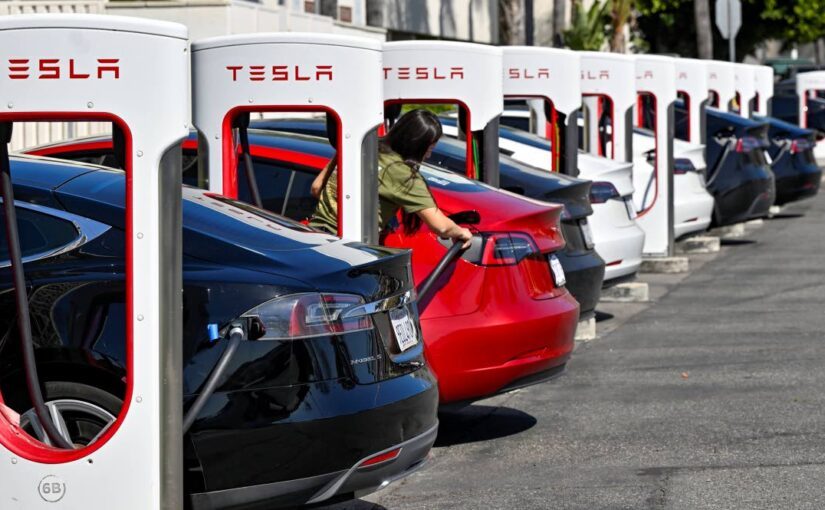The island of Cuba finds itself in February 2026 at a historical and humanitarian crossroads that rivals, and perhaps surpasses, the darkest days of...
Vous n'êtes pas connecté
- English
- Français
- عربي
- Español
- Deutsch
- Português
- русский язык
- Català
- Italiano
- Nederlands, Vlaams
- Norsk
- فارسی
- বাংলা
- اردو
- Azərbaycan dili
- Bahasa Indonesia
- Հայերեն
- Ελληνικά
- Bosanski jezik
- українська мова
- Íslenska
- Türkmen, Түркмен
- Türkçe
- Shqip
- Eesti keel
- magyar
- Қазақ тілі
- Kalaallisut ; kalaallit oqaasii
- Lietuvių kalba
- Latviešu valoda
- македонски јазик
- Монгол
- Bahasa Melayu ; بهاس ملايو
- ဗမာစာ
- Slovenščina
- тоҷикӣ ; toğikī ; تاجیکی
- ไทย
- O'zbek ; Ўзбек ; أۇزبېك
- Tiếng Việt
- ភាសាខ្មែរ
- རྫོང་ཁ
- Soomaaliga ; af Soomaali
Rubriques :
 Maroc - NEWSDAY.CO.TT - A la Une - 11/07/2024 03:00
Maroc - NEWSDAY.CO.TT - A la Une - 11/07/2024 03:00
TT Chamber: Innovation, technology key to energy efficiency
Energy efficiency is the practice of using less energy to provide the same amount of useful output from a service, such as heating water, lighting a room or cooling a fridge. Over the last decade, various technologies have been developed to improve energy efficiency in the residential, commercial, industrial, agricultural and transport sectors. Residential – High-efficiency home heating, ventilation, and air conditioning (HVAC) systems: In the past, air conditioning units operated with fixed-speed compressors. Inverter air conditioning units can use between 25 and 50 per cent less energy to cool a room by adjusting the compressor speed to control the refrigerant flow rate, based on the temperature of the incoming air. This is a very effective way to maintain cool indoor air while minimising energy use. – Insulation: This helps to reduce the amount of energy needed to cool or heat a building by radiating heat back to its source. Commendably in TT, it has become a standard practice to use roofing insulation for home construction. – Energy efficient appliances: New technological innovations are being introduced regularly to improve the efficiency of household appliances such as clothes dryers, washing machines, microwave ovens and fridges. Commercial – Efficient consumer electronics: For both commercial and home offices, it is highly advisable to use electronics with energy-efficient features such as sleep mode, low-power displays, smart chargers, energy-efficient processors and solar power. – Commercial refrigeration: Businesses such as restaurants, supermarkets and fishing depots can save money and energy by optimising their refrigeration equipment to reduce energy consumption. One of the features included in modern commercial refrigeration equipment is an automated door-management system that reduces energy lost by open doors. – LED lighting with sensors: Motion-sensor lighting, coupled with LED lighting fixtures, can significantly affect energy usage, particularly in offices where lights are traditionally left on for 24 hours. – Enhancements to the building envelope: Both residential and commercial buildings can improve energy efficiency by applying an energy-smart design that allows for natural lighting and ventilation. Windows that incorporate infrared-insulating and ultraviolet light-reflecting glass, as well as insulating gas fill between glass layers, can also reduce the flow of heat between the interior and exterior of a building. Industrial and agricultural – Fuel-efficient motors and pumps: The industrial and agricultural sectors rely heavily on motors and pumps for plant and equipment operations. Adjustable or variable speed drive (A/VSD) motors control motor speed and torque in relation to the demand on the motor. – Programmable irrigation systems: Programmable water distribution systems, such as drip irrigation mechanisms, allow water and fertiliser to drip slowly onto the roots of plants, reducing water wastage. A system of pipes, tubes and emitters can be built into the soil surface or directly at the plant roots and programmed to release water and nutrients in small doses for heightened absorption. Transport – Fuel-efficient vehicles: Consumers now have the choice of buying compressed natural gas (CNG) vehicles, which run on natural gas – a cleaner alternative to gasoline. There are also the options of hybrid electric vehicles and all-battery electric vehicles (EVs). – Fuel-saving tyre design: Tyre manufacturers are now producing low-rolling resistance tyres that use less energy to rotate the tyres at the point of contact with the road. – Tyre pressure gauge: This simple and affordable instrument takes the guesswork out of measuring tyre pressure regularly. Studies have shown that running tyres at the correct pressure can reduce fuel consumption of the vehicle and contribute to overall vehicular safety. As with all types of technological advancements and increasing adoption, energy-efficient technologies are becoming more affordable and accessible worldwide. It is recommended that when considering a new purchase for a home or business, individuals and corporations should incorporate energy efficiency into their selection criteria. TT Chamber thanks the National Gas Company of TT, a platinum signature sponsor, for contributing this article. The post TT Chamber: Innovation, technology key to energy efficiency appeared first on Trinidad and Tobago Newsday.
Articles similaires
The Energy Siege Of 2026: Cuba’s Struggle For Survival Amidst International Sanctions And Systemic Collapse – Analysis
The island of Cuba finds itself in February 2026 at a historical and humanitarian crossroads that rivals, and perhaps surpasses, the darkest days of...
Google Builds Data Center That Doesn't Use Water for Cooling
Data centers use a lot of energy and water. This is the reason why the construction of Tier 1 and Tier 2 data centers that use up to 50 million liters...
Google Builds Data Center That Doesn't Use Water for Cooling
Data centers use a lot of energy and water. This is the reason why the construction of Tier 1 and Tier 2 data centers that use up to 50 million liters...
New polymer alloy could solve energy storage challenge
In the race for lighter, safer and more efficient electronics—from electric vehicles to transcontinental energy grids—one component literally...
New polymer alloy could solve energy storage challenge
In the race for lighter, safer and more efficient electronics—from electric vehicles to transcontinental energy grids—one component literally...
U.S. military airlifts nuclear reactor for first time, from Riverside County’s March Air Reserve Base ...
The Pentagon and the Energy Department for the first time airlifted a small nuclear reactor from Riverside County's March Air Reserve Base to Utah,...
U.S. military airlifts nuclear reactor for first time, from Riverside County’s March Air Reserve Base ...
The Pentagon and the Energy Department for the first time airlifted a small nuclear reactor from Riverside County's March Air Reserve Base to Utah,...
Cuban farmers struggle to deliver products due to oil shortages
Moving food from the countryside to points of sale, with limited fuel available and the efficient use of transportation and animal traction, is today...
CSIRO launches $3 million upgrade to renewable energy research lab
Australia's national science agency has launched a major revamp of its renewable energy research facility in Newcastle to provide new capacity for...
Les derniers communiqués
-
Aucun élément



